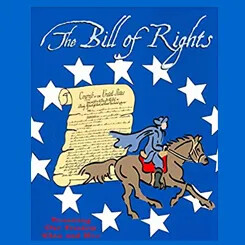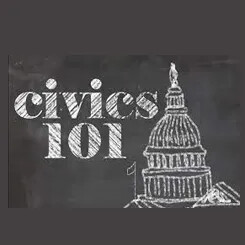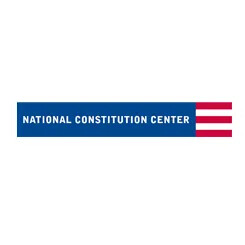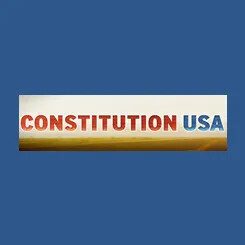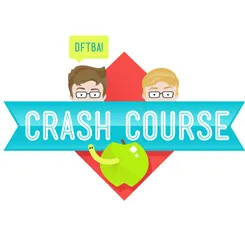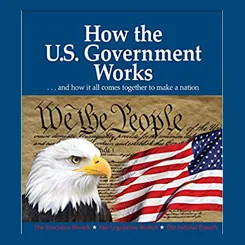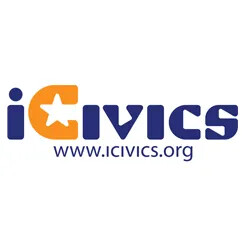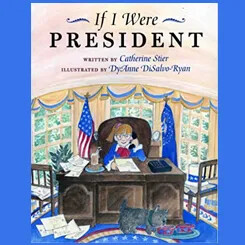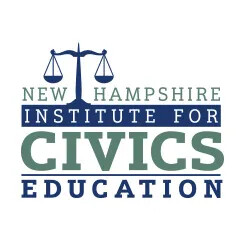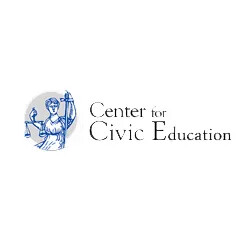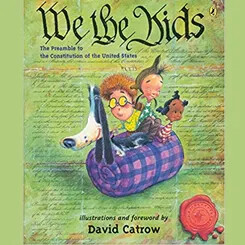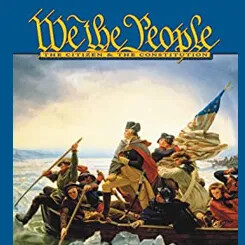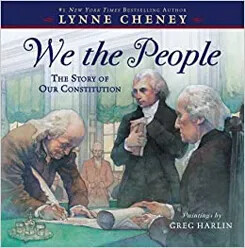| amend | (verb) To revise or change |
| amendment | (noun) An addition to an existing document; in the U.S. Constitution, the amendments come after the original document |
| ballot | (noun) Something used to cast votes in an election. Ballots can either be on a piece of paper or a computer |
| bicameral | (noun) A legislature that has two parts; the U.S. Congress is bicameral because it has the House of Representatives and the Senate |
| bill | (noun) In government, a draft version of legislation that is under debate and not yet law |
| Bill of Rights | (noun) The first 10 amendments to the U.S. Constitution that list the freedoms of the people and states; the Bill of Rights was adopted in 1791 |
| board of aldermen | (noun) A governing body of a city of town |
| branch of government | (noun) A section of government with its own purpose; the U.S. government has three sections of the government with different responsibilities that support each other to create, examine, and enforce laws |
| budget | (noun) An estimate for how much money will be spent and made in a set amount of time |
| bureaucracy | (noun) A group of unelected people who manage government business |
| cabinet | (noun) In government, a group of people who advise the leader |
| candidate | (noun) Someone who is applying for a job. In a presidential primary, a candidate is a person who is trying to get the job of president of the United States. |
| central government | (noun) The center or federal government of a group of states; the U.S. central government is in Washington, D.C. |
| check | (verb) In government, when one part of the government legally stops another part from taking its desired actions |
| checks and balances | (noun) The idea where separate parts of the government are given powers to stop each other’s actions and are made to share power |
| citizen | (noun) A member by law of a nation or group |
| citizen legislature | (noun) (noun) A group of people chosen or elected to make the laws for a colony or state; citizen legislators are not full-time politicians and usually have other jobs |
| citizenship | (noun) The position of belonging to a nation or group by law |
| city council | (noun) A group of elected officials that makes laws for a city |
| civic disposition | (noun) Having the traits necessary to take on the responsibilities of citizenship in a community |
| civic engagement | (noun) Actions taken to participate in the rights and responsibilities of citizenship in a community |
| civic virtue | (noun) Actions citizens do and qualities citizens have that benefit their community |
| civility | (noun) Behaving or speaking in a polite manner |
| clerk | (noun) A person who manages and keeps records and accounts in an organization |
| committee | (noun) A group of people who make decisions and plans about a specific topic or issue |
| common good | (noun) A phrase in the preamble of the Constitution; what is best for the community |
| community | (noun) A group of people living together or having something particular in common |
| compromise | (verb) The process of coming to a solution that works for everyone |
| consensus | (noun) When a group of people come to agreement about an issue |
| constitution | (noun) A document laying out the rules for how a government will work |
| Constitution | (noun) The document that lays out the framework for how the federal government works; written in 1787 and ratified in 1789 |
| Declaration of Independence | (noun) The document that said the 13 colonies would be free of Great Britain's control; it was adopted in 1776 |
| deliberative session | (noun) A time to explain, discuss, and debate proposals in government |
| democracy | (noun) A government ruled by majority vote of the people |
| democratic process | (noun) When citizens participate in governing their community |
| dictator | (noun) The ruler of a nation or people who has absolute power |
| discrimination | (noun) Unjustly treating someone or something differently |
| election | (noun) When people vote for a person for office or other position |
| eligible voter | (noun) Someone who is legally allowed to vote in an election |
| equality | (noun) When people or things are treated the same |
| executive | (adjective) Describing the person or branch of government who puts plans and laws into effect |
| executive branch | (noun) The section of government that puts plans and laws into effect |
| executive council | (noun) In New Hampshire, the elected group of people who advise the governor |
| federal | (adjective) The central government of a group of states; the U.S. federal government is in Washington, D.C. |
| federalism | (noun) When local towns, states, and the federal government share power together |
| foundational principle | (noun) An idea on which something stands; one foundational principle of the United States is the rule of law |
| founding documents | (noun) A piece of writing that states the ideas or principles on which a government was founded; in the United States, the Declaration of Independence, the Constitution, the Bill of Rights, and the Federalist Papers are founding documents |
| Founding Fathers | (noun) The people who led the colonies in the American Revolution, then designed and set up the government of the United States; also called the framers |
| free press | (noun) When the group of people who report the news are allowed to speak without controls from the government |
| General Court | (noun) The official name for the New Hampshire state legislature |
| good citizenship | (noun) Actions people take to appropriately behave as a member of a community, such as civic duty |
| government | (noun) A group of people that have the power to make and carry out laws for a community |
| governor | (noun) The leader of the executive branch of a state government |
| House of Representatives | (noun) One of two legislative chambers; usually larger than the Senate |
| individual rights | (noun) Freedoms a person has under a democratic government; for example, to speak freely or pursue happiness |
| infringe | (verb) To actively break a law or agreement |
| interest group | (noun) A group of people who care about a particular issue and try to influence the government on that issue |
| journalist | (noun) A person who investigates and reports the news |
| judge | (noun) A person who knows the law and decides for the community whether actions follow the law |
| judicial | (adjective) Describing the people or branch of government that decides if laws are fair |
| judicial branch | (noun) The section of government that decides if laws are fair |
| justice | (noun) 1 Behavior or treatment that is fair and right
2 A person who knows the law and decides for the community whether actions follow the law; justices are similar to judges but sit on state supreme courts or the U.S. Supreme Court |
| law | (noun) A rule that regulates the actions of members of a community |
| legislative | (adjective) Describing the people or branch of government that makes laws |
| legislative branch | (noun) The section of government that makes laws |
| legislator | (noun) A person elected to serve in either the House of Representatives or Senate |
| legislature | (noun) A group of people chosen or elected to make the laws for a colony or state |
| literacy | (noun) The ability to read and write |
| living document | (noun) A paper that is added to or changed through time |
| local control | (noun) When decisions about government are left up to the local community, rather than the state or federal government |
| majority | (noun) More than half of a group |
| mayor | (noun) The elected executive of a city |
| media | (noun) A system to communicate with a large number of people, such as television, radio, or newspapers; for example, the news media communicates about events |
| media literacy | (noun) The ability to identify different means of communication, to recognize and to evaluate the messages in the information, and to create your own communication |
| minority | (noun) Less than half of a group |
| moderator | (noun) A person who leads a meeting to ensure it is organized and balanced |
| monarchy | (noun) A form of government led by a king or queen who holds the leadership position for life |
| motion | (noun) A formal proposal made in a meeting |
| neutral | (adjective) Describing something or someone who is not on any side of an issue |
| party divide | (noun) When political groups disagree on many issues and have trouble working together |
| perspective | (noun) The point of view expressed through writing, speech, photographs, and other sources of information |
| point of order | (noun) A question in a formal meeting whether the rules are being followed |
| political party | (noun) An organized group of people with similar goals and opinions about how a nation should function. The United States has two major political parties: the Democratic Party and the Republican Party. |
| politician | (noun) Someone whose profession is to be in government |
| president | (noun) The elected executive of a government |
| press | (noun) News media including print and digital publications |
| public service | (noun) Something that is supplied for the benefit of the people; examples of public services are police, libraries, school, roads, courts, and military |
| representative | (noun) The person selected by a group of people who will communicate their views and make laws for them |
| republic | (noun) A community where people are governed by their elected representatives |
| responsibility | (noun) An action an individual takes to be accountable for something |
| rights | (noun) Something a person should legally or morally be able to do or get to have |
| school board | (noun) A group of elected representatives who make decisions about the school system in a town |
| select board | (noun) A group of people elected to govern a town |
| Senate | (noun) One of two legislative chambers; usually smaller than the House of Representatives |
| separation of powers | (noun) When the actions government can take to govern are divided among parts of the government in order to limit government’s power |
| social contract | (noun) An agreement between people and their government to give up some rights in exchange for security and law and order |
| society | (noun) What comes when people live together in a community |
| sponsor | (noun) In government, a member of the House or Senate who officially presents a bill to the legislature |
| supervisors of the checklist | (noun) People elected to maintain the official list of voters |
| tax | (noun) An amount of money, added to the regular cost of an item, that goes to the government |
| town council | (noun) A group of people elected to govern a town |
| town meeting | (noun) A formal gathering of the citizens of a town to discuss and vote on town business |
| town meeting day | (noun) The day on which a formal gathering of the citizens of a town to discuss and vote on town business occurs; in New Hampshire, this day is traditionally the second Tuesday in March |
| town report | (noun) A yearly document laying out the management, money matters, and actions of a town |
| veto | (verb) To reject something; in government, to reject the final version of a bill passed by the legislature |
| voter turnout | (noun) The number of people who voted in an election divided by the number of people allowed to vote; shown as a percentage |
| warrant | (noun) A document giving authority to do something |
| warrant article | (noun) A planned action or discussion item to be considered at a town meeting |
